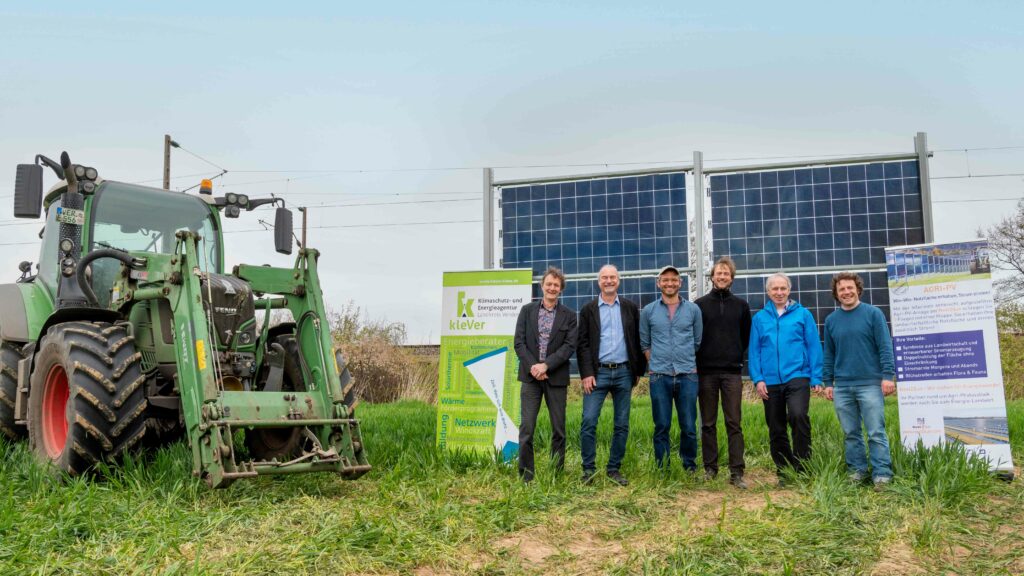Location: Verden County, Lower Saxony, Germany
Time span: 5 years
Green SDGs: 7, 11, 13, 15
Partners: Municipal Climate and Energy Agency (Verden County), local volunteer energy cooperative (civil society organization), local farmers and landowners, private company, Climate and Energy Agency Lower Saxony, scientific experts

In GOGREEN, we define the green SDGs as the following SDGs: SDG 6, SDG 7, SDG 11, SDG 12, SDG 13, SDG 14, SDG 15
The Aller-Leine Valley is a rural region in Lower Saxony, located between Hamburg, Bremen and Hanover, that encompasses 8 municipalities. About 70,000 inhabitants live on an area of about 774 km². The region has already made its name as a “100% energy region”: With regard to its electric power, the Aller-Leine-Valley had already achieved its target of 100% renewable energy supply in 2012 and thus plays a pioneering role in promoting the German energy transition. Over the last 20 years, the EU LEADER programme has enabled active collaboration of public, private and civil society actors to grow, and several climate mitigation measures have been jointly developed. A key project to further expand the region’s pioneering role is the current construction of a free-standing agri-photovoltaic plant in the municipality of Dörverden.
Agriculture is facing a variety of challenges. On the one hand, free-standing photovoltaic systems appear to be another competitor for land use, but on the other hand they open up new value-added opportunities for farmers and citizens. Instead of competing for land, Agri-PV aims to strategically combine climate goals and agricultural land use. For this, a system with around 575 vertical solar modules (“bi-facial modules”) is being installed, which will allow the cultivation of crops in between the rows. The land is to be cultivated organically and various organic farmers from the municipality have agreed to cooperate, thus a diverse cultivation can be tested during the pilot phase. The project will provide important knowledge on innovative agricultural land use methods for local communities and farmers, as well as accompanying scientists, who advise on organic farming and technology.
The project is a collaboration of the Municipal Climate and Energy Agency (Verden County) who has taken the lead, the local volunteer energy cooperative, local farmers and landowners, a private company, the Climate and Energy Agency Lower Saxony and scientific experts. It started in April 2022 with an official kick-off. In addition to the construction, which is planned for 2023, the project is scheduled for at least 5 years of plant operation in order to gain extensive experience in arable and vegetable farming, including scientific monitoring and evaluation. The construction requires corresponding changes in the land use plan in order to combine two land uses on one site. The legal foundations have been established.Since it is the first project in Germany to implement organic farming between the rows of photovoltaic modules, it is expected to set an example and to develop impact for future projects of Agri-PV.
GOGREEN investigates the innovation and implementation process from a point of view of sustainability transition governance. The research analyses the actor-network, the ways of cooperation and co-creation, and the impact of drivers and obstacles.
This website uses strictly-necessary cookies. To read more about WordPress cookies, click here. Please click on the ‘Accept’ button to continue on to the GOGREEN Project site.